I used to believe that morality was a matter of willpower. If Calvinists had koans, this one would have been the guiding principle of my early life:
Since everything that I want is bad, goodness is that which I do not want. The only valid desire is the desire to be good, which few have, and even fewer the discipline to attain.
Even as I was slowly becoming politically aware in the late oughts, my retrograde ideas about morality were reinforced by the most shallow, cynical, and reactionary aspects of swiftly commodifying internet feminisms. I became aware of the problematic at the same time I became aware of capitalism’s still-somewhat-nascent solution to digital political consciousness, which was to frame the problematic as momentary, insular, and subject to consumer trends while somehow, also, being the individual responsibility of the consumer1. Is this movie sexist? Is that sweatshirt racist? Egads! Don’t purchase the problematic item (forget that you couldn’t afford it, anyway)—here’s an unproblematic item for you to purchase instead, though do feel free to share your displeasure (make your voice heard!) online. Don’t forget to hashtag.
I eventually figured out that these capitalist headfakes were distractions, and that consumerist feminisms—along with white feminisms, girlboss feminisms, empowerment feminisms, and corporate feminisms—had an uncanny way of defanging anti-capitalist and revolutionary concepts and movements. These forces upcycle radical theory and action into corporate ad campaigns, state propaganda, and political woolpulling, like the MTA buses that urge you to report “bias-motivated threats” to cops in the name of “solidarity” (one wonders what is to be done about the unbiased threats). Or the COVID-awareness signage in Union Square that probably cost thousands in adspend to say empty stupid bullshit like “ENACT” and “DEFUND SADNESS” (or whatever the fuck).
It’s hard to believe now that this was not always obvious to me. While I understand why consumer feminist virtue signaling is its own stumbling block—it’s the stuff often termed “identity politics” before being conflated with materialist analyses of oppression and power in order to sweep both into the dumpster—I also recognize it as a stage in my political development. It’s a problem when people don’t know what to do with their newfound analytic lens other than to identify and (superficially) condemn the sexism, racism, homophobia, etc., around them. It’s a bigger problem when they don’t learn to use those lenses as tools for something much more useful.
Around the time I started reading sites like Jezebel, I was dating someone on a somewhat parallel journey. The only other non-straight-white guy in our friend group, my boyfriend—a straight Chinese-American man—and I were starting to have conversations about the casual racism and misogyny of our culture, as well as that of our friends, (micro)aggressions that we sometimes foisted on each other, too. As our consumer habits began to be influenced by what we were recognizing as racist or sexist or what have you, the size of our project dawned on us. “If we don’t watch anything that’s problematic,” my boyfriend asked one night after I vetoed a particularly problematic movie, “will there be anything left for us to watch?”
I didn’t know. Neither of us had ever been avant-garde, or punk, or counterculture. Our movies starred Schwarzenegger and Tony Jaa. Our message boards were toxic. His video games were violent. For date nights, we watched MMA. As we began to connect big ideas like poverty, labor, or immigration law to the details of our own lives, we began to wonder what 86ing Con Air was supposed to accomplish. How was antipleasure going to serve us?
While my boyfriend’s question had been asked in earnest, it seemed to me that it missed the point. From my still-pretty-Evangelical perspective, whether or not we were “entertained” didn’t matter, because the right thing to do was abstain from the problematic, even if it made our lives boring. My boyfriend was asking, What else is out there? I had yet to realize that that was just as important as, What’s here right now isn’t working.
Our relationship didn’t outlast my coming out and the political awakening hot on its tail. As I began to branch out from Jezebel to writers like Monica Jones and Twisty (does anyone else remember Savage Death Island!?); as I began building communities with queers, anticapitalists, anarchists, antiracists; as I began organizing with my local Occupy chapters, I slowly, lopsidedly began to understand that my experience of culture didn’t have to be a white-knuckle abstention from the great white men I had always known as the bearers of Truth. I would not have to avoid Polanski, Allen, Gibson, Cosby, Foster Wallace2, etc., like as a Christian child I had once avoided the temptations of MTV. I would simply lose interest in them.
This happened naturally, because more often than not their bigotry, their records of (sexual) violence, and their commitment to reaffirming supremacy logics were right there in their work, rippling red flags of their intellectual stinginess, vacuity, and hate. Even their generosity was a symptom of self-consciousness that dripped with condescension3. Once unable to see anything else, I now found it almost impossible to stomach.
The version of me aswim in consumerist feminisms would have the current me chastised for still enjoying a noir like Polanski’s Chinatown (1974), insisting on the inherent badness that is its birthright. Thank god she has grown up. That which was once problematic—in the way that would have gotten you lightly canceled, in today’s parlance—has become, if not irrelevant, then contextualized and often surpassed by forms of creation that I didn’t even know existed.
The problem with nuance is that while it dissolves dogma, it doesn’t resolve it. There are some problematics I can’t let go of.
The laconic, ice-eyed William Hurt is an American actor who stars in some of my favorite movies, the ones I watch when I’m depressed, or when I’m going through a breakup, or when I’m sharing myself with new people. A 6’2” daddy-type wreathed in world-weary mystery4, the man was on fire in the 80s, starring in a series of critically acclaimed hits—Body Heat (1981), The Big Chill (1983),Kiss of the Spider Woman (1985), and Children of a Lesser God (1986)—about love and passion and the reconciliation of desire and difference. These movies, which I first watched in my late teens and early twenties, remain beloved to me, living inside the vapid and velvety reservoirs of my girlhood, where I still occasionally retreat to doodle hearts and moon.
Discovering that Hurt, the man, was problematic changed how I related to these movies, and to Hurt himself, but I was dismayed to find that it did not eliminate my interest in him. What was to be done? Nothing, and yet that didn’t feel like enough. As if refusing to stream or even steal Altered States (1980) could somehow punish or disempower him, could change the vicious, horrible things he did to Marlee Matlin, his co-star in Children of a Lesser God and his former partner. How could someone I had watched convey such depth and tenderness embody this brutality in his real life? How could he show me love and then break it? How was it that he had changed me, and how was it that knowing the substance of his life could not change me back?5
I’ve mostly stopped paying attention to art and media created by people like Hurt, not as a matter of principle but of priority: I’m more interested in art that interests me, and nothing is more boring than convention (which doesn’t mean that the banality of evil isn’t sometimes titillating or fascinating). But it’s also true that the badness of the artist is not always enough to eliminate their art from my purview.
Though I’ve come to terms with it, I’ve spent a lot of time distressed by my inability to banish my bad desire for the bad man (one that’s not purely or even primarily erotic, by the way). What was I to do with this implicated art, this tainted art?
As this DAVID series draws to a close, I’ll remind you that while we can hack our bodies with leather and art, like the mask, hacking goes both ways. These mechanisms can be switched on in ways we can’t anticipate or control. In the second installment, I wrote about how unfair it feels that I have to be careful about the art I witness in order to keep myself safe. “Is that what self-protection is? Choosing not to participate in life to forestall the aftershock of trauma?” I asked.
I think we fall back on a conception of art as distinct from our bodies and embodied experiences, and that this conception limits our understanding both of art and of ourselves. A more somatic perspective would allow for a richer understanding of artistic experiences without ruling out the dangers they can present.
The internet is littered with discourses that leverage art for violence. To the Disneyfied, art ought to be a moral compass; to the racist and homophobic, art is an excuse to scapegoat black queer and women artists for violence against children. To the rape apologist, art can and should be separated from the artist when the artist in question has hurt other people, positioning critique of the artist as irrelevant yet critique of the art as assault. This is a disingenuous attempt at a failed project: to sever not only the creator from what he has created, but “art” from “reality,” behavior from punishment, harm from consequence.
It’s cruel to ask us to pretend it can be done, crueler still when we consider how brutality accumulates in our bodies, sometimes overwhelming our systems. We don’t choose how we respond to art’s resonance, any more than we choose which resonates with us.
David tweets at @k8bushofficial.
I’m reminded of Kay Gabriel’s “creative destruction of the capitalist life-world.”
A David I have yet to write about…for now.
I’m reminded of the extremely cringe largesse of Norman Mailer in this Dick Cavett episode with Muhammad Ali.
In a 2018 interview, Kathleen Turner, who starred with Hurt in Body Heat and The Accidental Tourist, aptly punctures the aura that made such an impression on me as a younger person. “Bill can be very odd…God, you did not want to get Bill talking too much.”





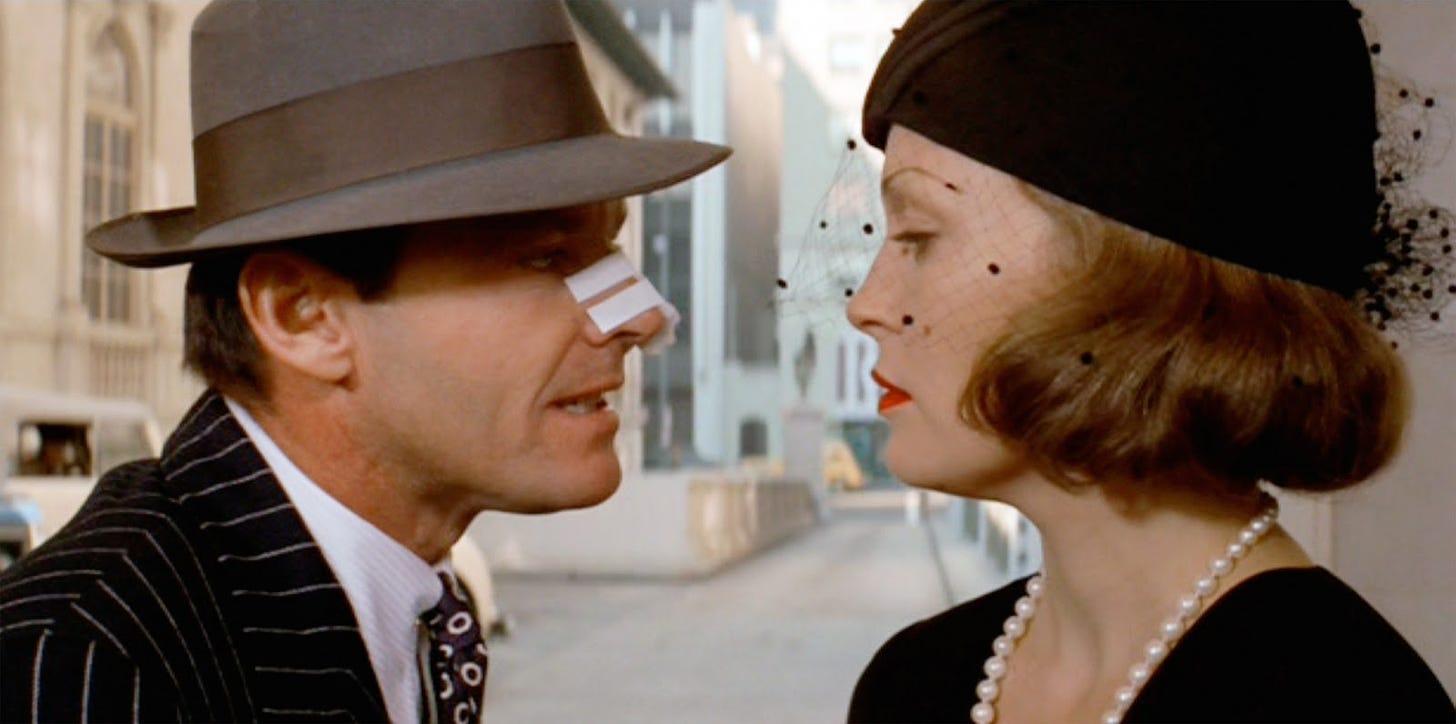
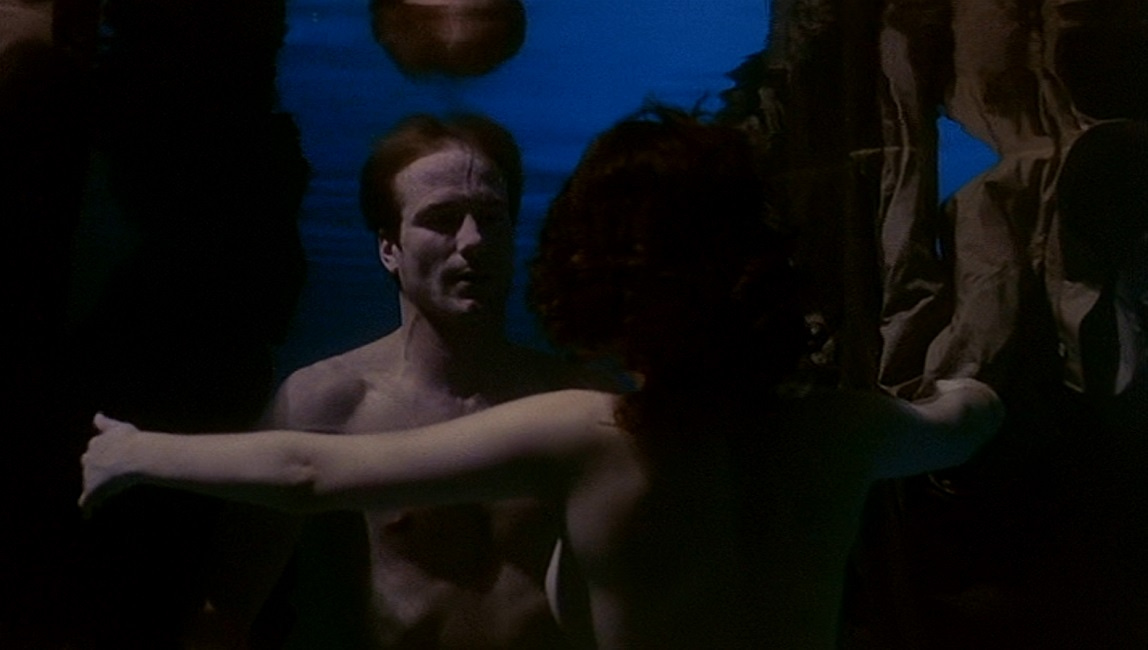
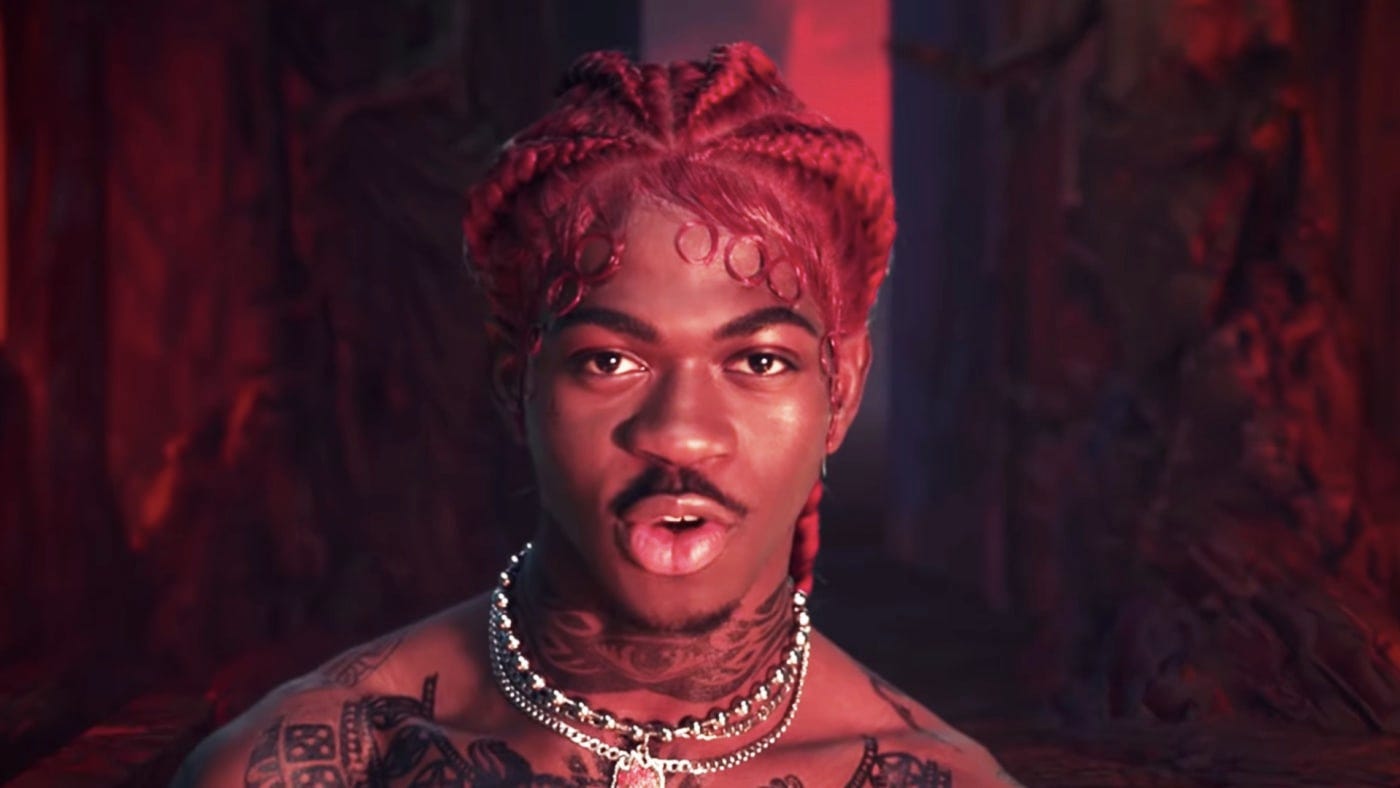


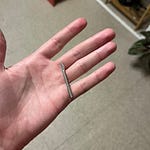





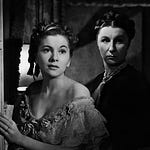
Share this post